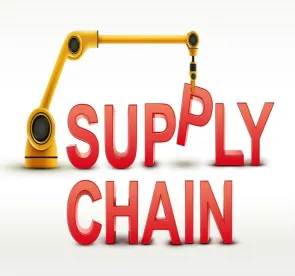On July 20, 2020, Senator Josh Hawely (R-MO) introduced the Slave-Free Business Certification Act of 2020 (Act), which would require certain large companies to investigate and report on forced labor within their supply chains.
The proposed Act has three major components: mandatory investigation and auditing, mandatory annual reporting to the U.S. Department of Labor (DOL) that includes a CEO certification, and significant penalties for non-compliance. The DOL would be required to promulgate implementing regulations within 180 days of enactment.
Covered Business Entities
The Act would apply to any “issuer,” as that term is defined in section 2(a) of the Securities Act of 1933 (15 U.S.C. 77b(a)), with annual worldwide gross receipts exceeding $500 million.
Supply Chain Investigation and Auditing Requirements
Under the Act, a covered business entity would be required to “conduct an audit of its supply chain … to investigate the presence or use of forced labor” by the entity or its suppliers, including by direct suppliers, secondary suppliers, and on-site service providers.
The Act requires the investigation and auditing process to include:
- Worker interviews,
- Management interviews,
- Document review,
- Closing meetings with management, and
- An audit report.
Annual Reporting Requirements
A covered business entity would also need to submit to the Secretary of Labor and post on its website a detailed report outlining the results of the investigation and audit, including the details of any instances of forced labor; the policies or procedures the covered business entity has in place to address forced labor issues in the supply chain; and a written certification, signed by the CEO, stating that the entity has complied with the requirements of the Act and either found no instances of forced labor or has disclosed every known instance of forced labor.
Penalties for Non-Compliance
The bill includes a significant enforcement mechanism that allows the Secretary of Labor to assess penalties for noncompliance. Specifically, the Secretary of Labor can assess civil damages up to $100 million and punitive damages up to $500 million for failure to comply with the Act’s audit and reporting requirements.
The Broader Context
While prospects for the Act’s passage are uncertain, bipartisan support within Congress and across the U.S. government for human rights initiatives appears to be growing due to a combination of factors. These include mounting trade tensions along with concerns about specific reports of human rights abuses involving the Uyghur population in China. The proposed legislation would build on supply chain due diligence and disclosure requirements already in place in California and at the U.S. federal level including the California Transparency in Supply Chains Act, the Conflict Minerals Statutory Provision and Securities and Exchange Commission Rule, and the Federal Acquisition Regulation provisions on Combatting Trafficking in Persons. Legislation mandating human rights due diligence and modern slavery disclosures is also continuing to emerge in a number of countries around the world, adding challenging new obligations for multinational companies operating across jurisdictions with increasingly complex supply chains.






 />i
/>i

